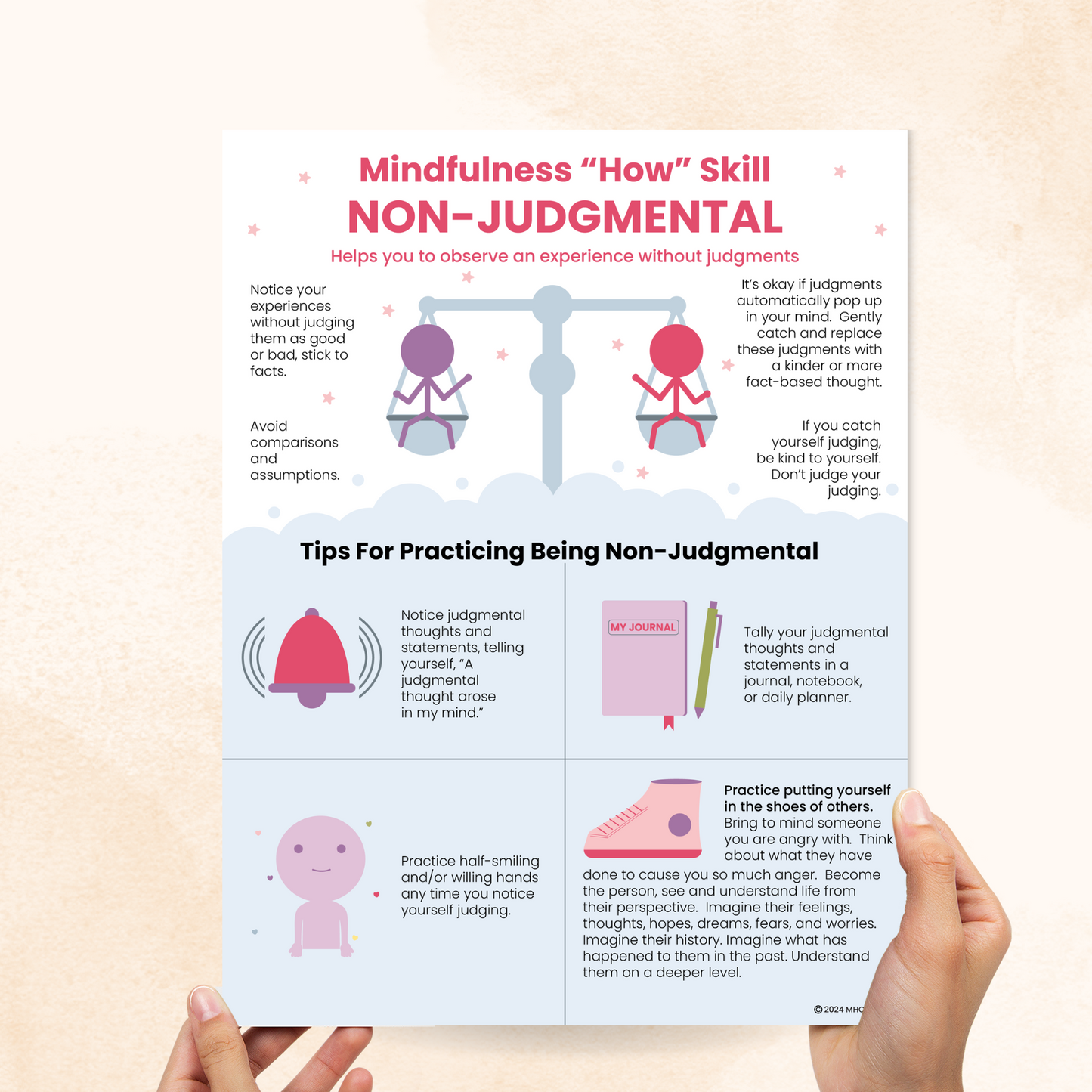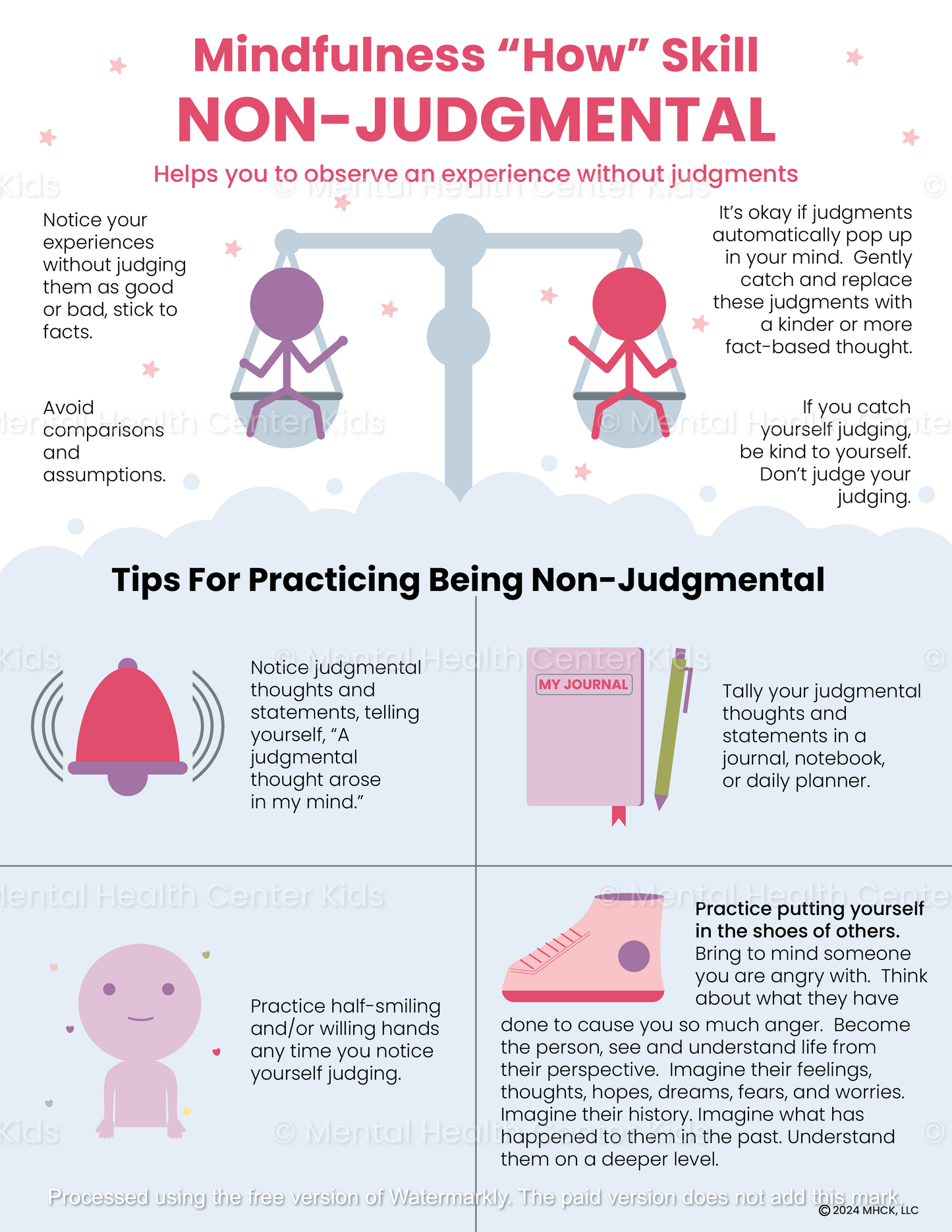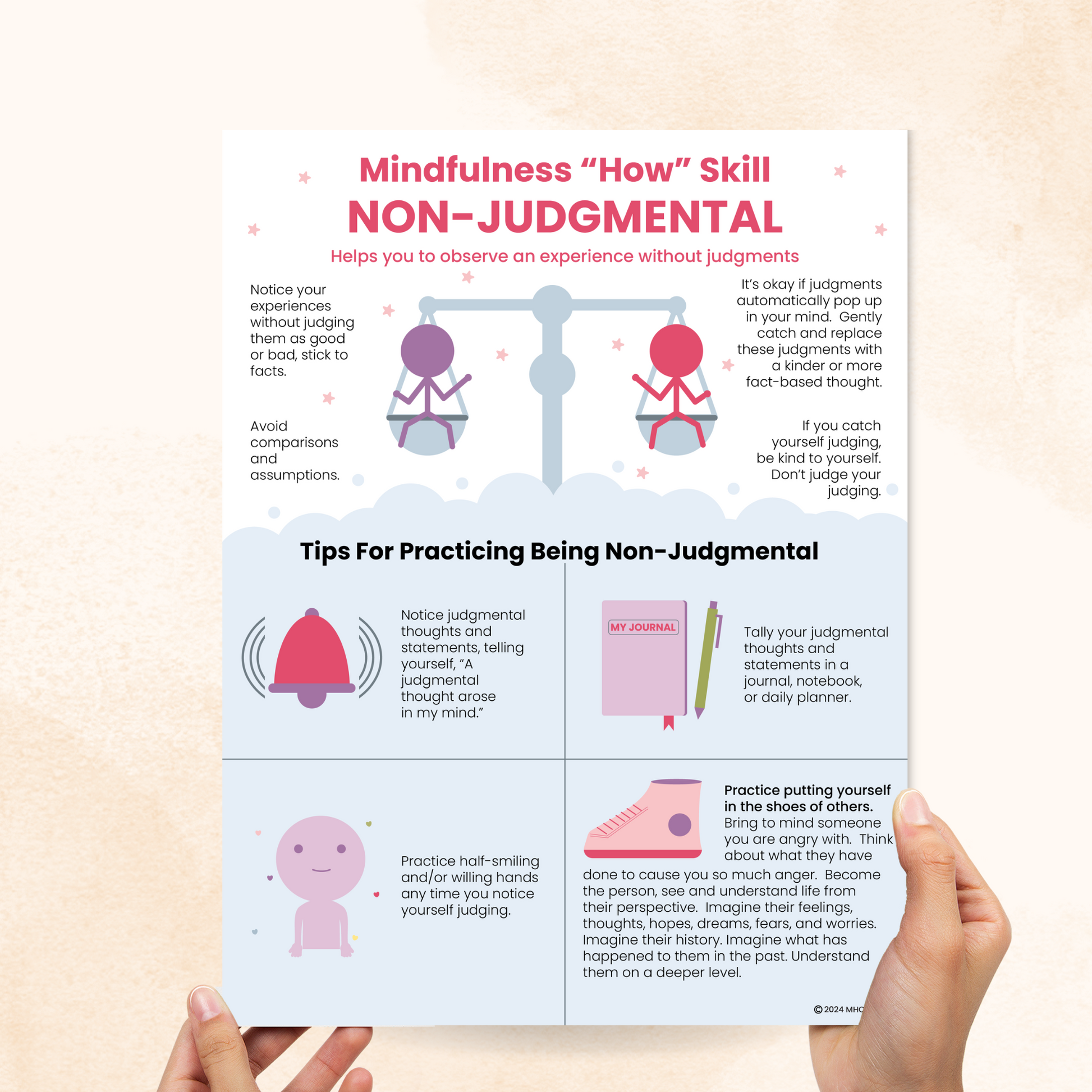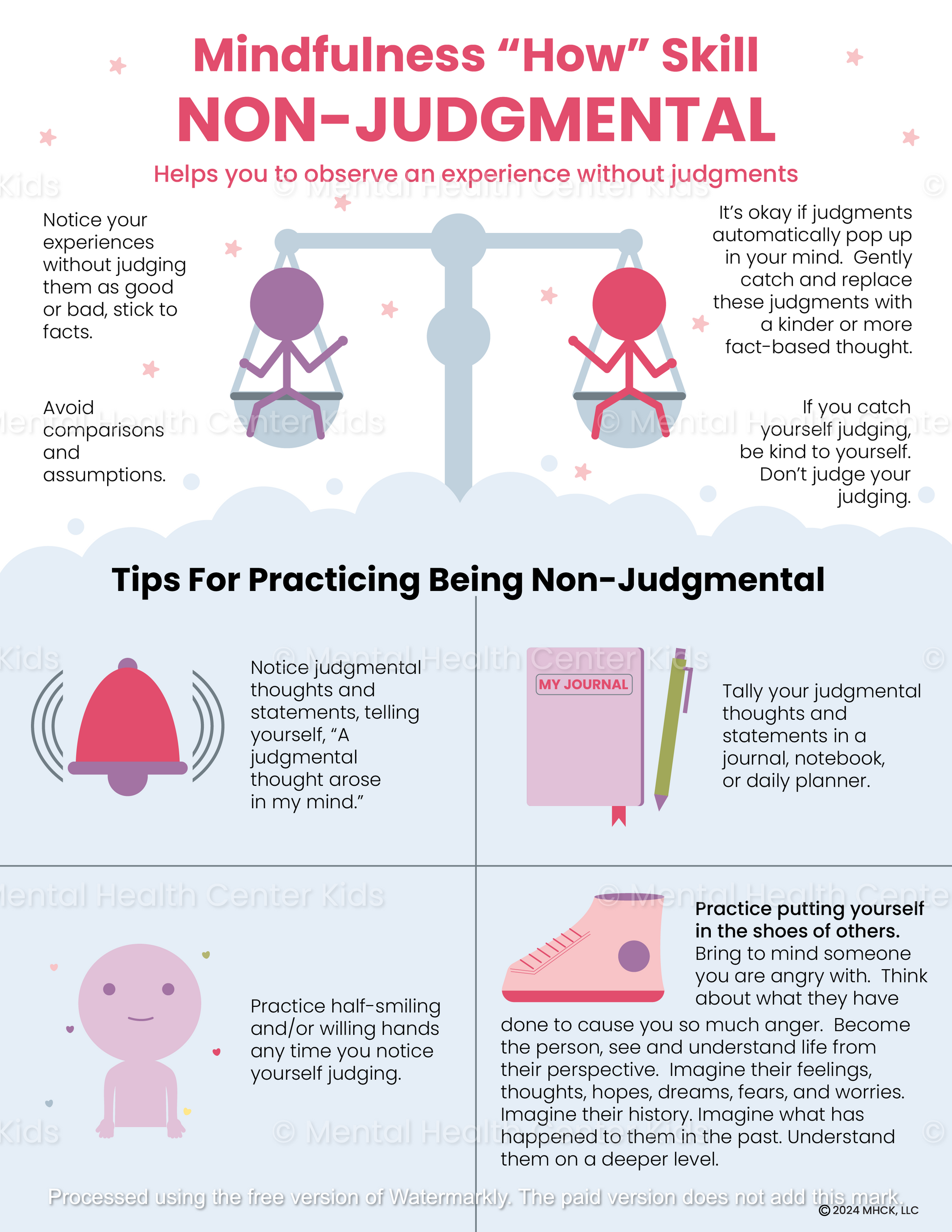DBT Non-Judgmental Mindfulness "How" Skill (PDF)


The non-judgmental mindfulness “how” skill in Dialectical Behavior Therapy (DBT) reduces excessive judgmental thinking, worrying, and acting irrationally. Having initial negative thoughts, impulses, or urges is normal, but the more we learn to be less reactive and judgmental toward our experiences, the more we’re able to recognize and break free from habitual and maladaptive patterns of thinking and behavior.
The DBT Non-Judgmental Mindfulness "How" Skill handout offers a good introduction to the skill and simple explanations of how it works. For example, clients will learn how to notice their experiences without judging them as good or bad and stick to the facts. In case they catch themselves with their initial judgments, they can replace these judgments with a kinder or more fact-based thought.
Using this handout helps kids and teens have a greater sense of clarity regarding their values and behaviors, and learn how to self-regulate. When writing down their judgmental thoughts in a journal, let them perform this activity in a cozy corner that’s free from distractions. They can also do deep breathing before journaling to become more present.
Feel free to add-on our DBT “How” Skills Worksheets, which include a 1-page non-judgmental worksheet to support individuals in applying the skills from this handout. We also offer a DBT “How” Skills handout for a quick reference to all three mindfulness “how” skills.
*This item is an instant digital download. A link to download your files will be emailed to you once payment is confirmed.
Want more resources like this? Check out our full catalog of DBT worksheets and handouts.
References:
- Jones, S. M., Bodie, G. D., & Hughes, S. D. (2016c). The impact of mindfulness on empathy, active listening, and perceived provisions of emotional support. Communication Research, 46(6), 838–865. https://doi.org/10.1177/0093650215626983
- Kabat-Zinn, J. (1982). An outpatient program in behavioral medicine for chronic pain patients based on the practice of mindfulness meditation: Theoretical considerations and preliminary results. General Hospital Psychiatry, 4(1), 33–47. https://doi.org/10.1016/0163-8343(82)90026-3
- Shapiro, S. L., Oman, D., Thoresen, C. E., Plante, T. G., & Flinders, T. (2008). Cultivating mindfulness: effects on well‐being. Journal of Clinical Psychology, 64(7), 840–862. https://doi.org/10.1002/jclp.20491
- Instant digital download
- File: PDF
- Size: 8.5" x 11"



